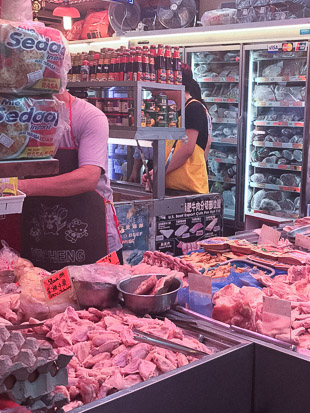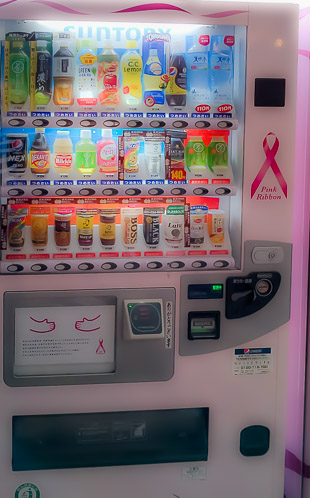Manage your travel money
Money and payment on the road can be a bit more exiting than at home: Businesses elsewhere have different habits, you house bank is far away and you have to bring funds with you in some way.

Money and payment on the road can be a bit more exiting than at home: Businesses elsewhere have different habits, you house bank is far away and you have to bring funds with you in some way.
I still remember the days where, before embarking on a trip, I’d go to my bank and buy some foreign cash and traveller cheques. I’d then spend an hour or so in Taiwanese bank offices, with paperwork in Mandarin, to cash the cheques. I also had a savings book from the German Post, which I could take into certain European countries and make withdrawals in their currency at local post offices.
Credit cards are your friends
Your credit card is your new best friend when traveling: Major cards are accepted all around the globe – if not in shops, then at least for cash withdrawals. Nowadays we don’t bother bringing local currency with us; we just get some cash from an ATM at arrival.
You don’t have to worry about the exchange rate either: For credit cards it is set by the network (e.g. VISA or MasterCard), and it is very close to the “true” rate that banks use when dealing with each other. You are unlikely to get a better one through local exchange shops in most places.
Look out for fees
Having a good conversion rate is reassuring, but your bank can still add transactions fees on top. Many banks charge a 1-3% fee for foreign-currency transactions – some even a per-transaction fee on top of that.
Even worse: Cash withdrawals – the most important thing abroad – may have additional fees compared to “normal” payments.
Which means: Look at the fine print before you go. There are banks that charge no foreign transaction fees. One that is available in many European countries is N26, but local banks may have even better offers.
Do as the locals do
 Shopping elsewhere. Photo: Ingrid
Shopping elsewhere. Photo: Ingrid
A credit card is great to exchange money, but be aware that it may not be as widely accepted as at home:
I, for example, almost never need to get cash when going to London – my contactless credit card works virtually everywhere.
In Berlin or Tokyo, this wouldn’t be possible: Many small restaurants and shops take only cash or local payment cards, and even taking the subway can be problematic without cash.
Look out for:
- ATMs that do not work with international cards at your destination (e.g. in Japan only 7-Eleven or the Post offices take foreign cards)
- ATMs that charge an extra fee for withdrawals for all cards
- Other payment options that you could use locally (such as the Octopus card in Hongkong)
Check in advance how things work locally, and make your arrangements immediately upon arrival.
Don’t pay in your home currency
When you use an international credit card abroad, you may be offered to make the transaction in your home currency (e.g. “do you want to pay in dollars?”).
Don’t ever do that. The service, sometimes called “dynamic currency conversion”, is advertised as “free” but you’ll get a conversion rate that is up to 10% worse than the one your credit card would give you.
The same goes for cash: Some places may take Euros or Dollars, but don’t count on getting a good conversion rate. (The only exception may be countries where the dollar or euro are a de facto currency anyway).
Don’t rely on (one) card only
 Vending machine. Photo: Ingrid
Vending machine. Photo: Ingrid
Don’t make the mistake of only relying just on your credit card. There are a number of reasons why it won’t work, and nothing sucks more than being stuck in immigration and unable to pay for the entry visa…
So do carry a reasonable amount of cash – even in your own currency – and ideally more than one credit card.
Let your bank know
Unlike with my trusty old savings book, each credit card transactions is automatically checked for fraud. If the card is suddenly being used abroad, the system may decide that this could be fraud, and block the whole thing.
If that happens on a weekend, it may take you days until you can reach your bank and sort things out – for most banks, there’s no such things as an emergency unblock hotline.
In order to avoid this, notify your bank in advance where you’re going so that they can adjust the system. This doesn’t guarantee that your card will never be blocked, but your chances are much better with your bank knowing.
Check your limit
When you’re on the road you’ll usually pay more than at home: Travel, hotel, rental cars, you name it. Make sure that your credit card limit allows for that.
Be aware that there are also “hidden” transactions that count against your limit: When you rent a car, the deductible will be “blocked” on the card until you return the vehicle – this won’t show up on your card statement, but effectively lowers your limit. And if the rental company can’t block the deductible, because you limit is too low, you may not be able to rent at all.
You may also need money for emergencies: In many parts of the world hospitals and doctors want immediate payment. And while you should always carry an appropriate health insurance, the doctor that you are seeing may not be able or willing to directly deal with your health care provider.
There are two ways to raise your limit: You can either ask your bank to raise it for a limited amount of time, or, if that doesn’t work, you can transfer additional money into your credit card account, which increases your spending limit by the amount you put in.
Don’t forget that cards may also have daily and/or weekly limits for purchases and withdrawals, so make sure you know what they are.
Get a second credit card
Carrying a second card makes sense, so try to find one without a monthly fee that you can use as a backup. If you’re traveling together, and each one of you has their own account and card, you’ll also have backup (if all your cards belong to the same acoount they may be blocked together, so you should still have an additional backup).
Bringing cash
Except for some special circumstances we don’t suggest that you carry your entire travel budget in notes. But it does make sense to carry around enough cash to survive a day or two in case the electronic banking fails on you.
 Photo: Rawpixel
Photo: Rawpixel
Exchanging money can be as cheap as using your credit card, and in some cases even preferable: When we go to Romania, we can withdraw Euros free of charge; and there are money changers that don’t charge fees and have an exchange rate almost as good as the credit card.
Use caution when changing
The problem with exchanging money is that there are a lot of places designed to rip you off, especially in places with a lot of tourism, like airports or train stations: You can easily end up changing Pounds in Euros at a 1:1 rate at major stations in Paris.
The best places to change money change from country to country. I many places banks are your best bet, but in others it’s better to use independent exchange booths. (Stay away from “black market” types, unless you’re really sure what you’re doing).
In any case: Do your calculations beforehand. Be aware of the official exchange rate, and check for any fees. If you have a smartphone you can also use a currency conversion app (I like Amount Plus which costs next to nothing and can convert anything into anything).
Spend all your cash
Finally, don’t exchange too much and try to not bring cash back with you. Changing it back at home can be expensive and/or bothersome.
If you still have some cash left, you can always buy some souvenirs; or you can donate what has been left over: There are a lot of charities who’ll collect you foreign currency and convert them for a good cause.
Stay safe
Withdrawing money from ATMs as needed means that you don’t have to worry about your entire travel budget being stolen at once; and while losing a credit card is bothersome, it won’t normally mean any real financial loss.
It still makes sense to set things up that having your pocket picked doesn’t mean the end of trip: While you can quickly block a stolen card, you won’t be able to get a new one while abroad.
- Keep your different cards in different places. Don’t throw everything in one bag when traveling together.
- Keep a copy of “emergency information” somewhere safe. This includes emergency phone numbers, copies of documents and account numbers.
- Do not write down any PIN codes, passwords and the like.
- Your phone (or computer) can be a backup of sorts, but remember that it too can be stolen. Don’t keep it unlocked, make sure it’s encrypted and that you have a recovery plan for when it’s gone.
If stuff gets stolen
If your are stolen from, make sure to block all cards right away. Some banks may not cover abuse that happens before the card was blocked. Be aware that blocking a card will usually block all cards for that account; this means that if you have a shared account, your partner’s card may be blocked as well.
Filing a report with the police may seem pointless, but it is often required by banks and insurances, so do this as well.
Financially, if you have a backup card, you should be fine at this point (even though losing your travel documents or phone may still be a major headache).
If lose all your cards, your last resort may be to call someone you trust and have them send you money through Western Union or a similar service.
But if you ask around, there may be other possibilities: We’ve heard of people who lost there credit card, were able to get cash from fellow hotel guests and refund them through PayPal, for example.
Get the newsletter
When you subscribe to the newsletter, we'll keep you up to date on what's new. You can unsubscribe at any time.
Share this page
What do you think?
Let us know what you think - privately or here for all to see. Simply email us or check our imprint and privacy policy for more info and possibilities to get in touch